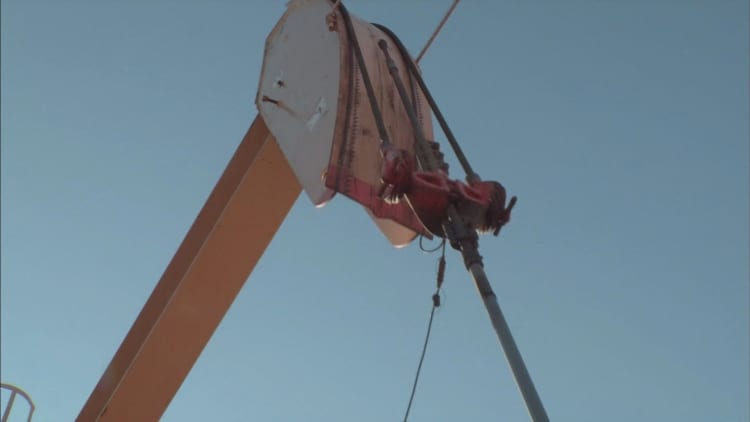
Saudi Arabia's plan to diversify its economy away from oil grabbed the headlines this week, but other crude exporters have similar plans.
Saudi Arabia's "Vision 2030," which includes plans to create the world's biggest sovereign wealth fund, privatize state-owned companies and attract more tourists, joins a host of similarly named programs from other Gulf states.
Oman hatched its "Vision 2020" in 1996, while the United Arab Emirates (UAE) has "Vision 2021" and there is "Vision 2030" in Bahrain and the "Qatar National Vision 2030" — all aimed at diversifying economies away from oil.
This is an urgent move as and WTI crude oil prices remain far below the above-$100 per barrel levels reached before the collapse in oil prices began in June 2014.
"We think the Gulf is acting in a much more vigorous and far-reaching way than was the case the last time oil prices collapsed in the 1980s," Charles Robertson and Vikram Lopez of boutique investment bank, Renaissance Capital, said in a report on Thursday.
"Reform then was modest and late, and by the 1990s their economies remained too dependent on the state, over-subsidized and with excessively rigid labor markets," the strategists added.
The UAE and Bahrain are already making the subsidy cuts promised by Saudi Arabia and have previous embarked on privatization drives that Robertson and Lopez said delivered good results in the 1990s.
Slightly less of UAE's gross domestic product is based on oil and gas output — 40 percent — than in Saudi Arabia, where half of the economy is directly based on energy. That is according to OPEC, to which both countries belong.
Some oil-producing countries, including Venezuela, Ecuador, Nigeria and Angola, defaulted on their sovereign debt in the 1980s when crude prices entered a six-year slump.
Energy Futures
However, there is hope that at least some countries will cope better this time.
"We are encouraged by reforms that should help oil exporters manage in a $45 oil price world, with potential upside surprise if oil does not continue to follow the 1980s template," Robertson and Lopez said.
Oxford Economics said on Tuesday that sovereign distress was less than in the 1980s, due to far lower interest rates and greater ease of refinancing debt.
"A long grind lies ahead, but history suggests those adhering to fiscal and real exchange rate adjustment can restore growth," the economic-forecasting firm said in a report.
Several oil-producing countries have opted to float their currencies recently, including Russia, Kazakhstan and Azerbaijan. This has led currencies to devalue, making their exports more competitive and serving as an economic "shock absorber."
Oxford Economics saw sovereign default as "imminent" in Venezuela, however.
"An IMF program (in Venezuela) would probably be the best solution to the current crisis, but the government has always had a strong anti-IMF anti-imperialist rhetoric," it noted.
Follow CNBC International on Twitter and Facebook.

